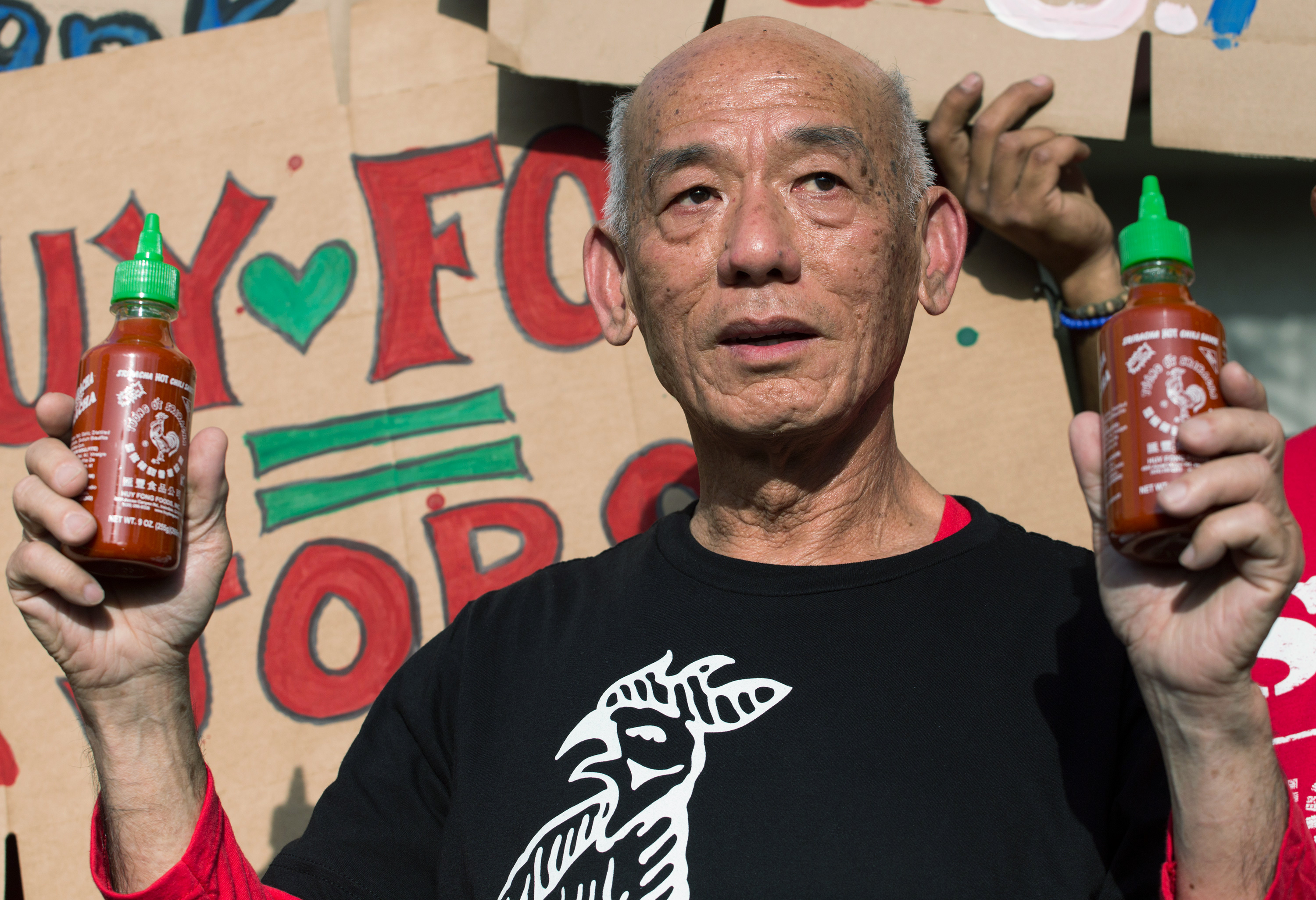The Sriracha hot sauce guy is an American hero
All hail David Tran


A free daily email with the biggest news stories of the day – and the best features from TheWeek.com
You are now subscribed
Your newsletter sign-up was successful
Many decades ago, a man in Vietnam had a noble dream. David Tran wanted to make the greatest hot sauce the world had ever tasted.
For five years after the fall of Saigon, he put his homemade chili sauce in old glass baby food jars and delivered them via bicycle. In 1979, he boarded a Taiwanese freighter called the Huey Fong and was able to gain entrance into the United States as a refugee.
Soon afterward, working out of a 5,000-square-foot building in Los Angeles' Chinatown, Tran began making sauces under a brand name borrowed from the ship that had carried him to freedom. Tran's Huey Fong produced Pepper Sa-te, Sambal Oelek, Chili Garlic, Sambal Badjak, and the concoction that would become his best known, Sriracha Hot Sauce. He painted the now-famous rooster logo himself on the side of a blue Chevrolet van and drove as far as San Diego and San Francisco delivering his creations to Asian restaurants. His sauces became popular by — there is no other way of putting it — word of mouth.
The Week
Escape your echo chamber. Get the facts behind the news, plus analysis from multiple perspectives.

Sign up for The Week's Free Newsletters
From our morning news briefing to a weekly Good News Newsletter, get the best of The Week delivered directly to your inbox.
From our morning news briefing to a weekly Good News Newsletter, get the best of The Week delivered directly to your inbox.
Tran's dream came true, and the rest of us are lucky to live in the now realized kingdom of his envisioning. In my household, Sriracha is the most important condiment. It is an ingredient in everything from hot wings to carrot soup. My wife even puts it on pizza. Nor are we alone in our devotion to the red bottle. "I use rooster sauce on everything," one enthusiast claimed in a recent documentary film. "Pastas, pizzas, eggs, soups, sandwiches. I've even tried it on ice cream."
As of 2014, Tran was selling more than $100 million a year worth of sauce. It has been decades since he has increased the wholesale price of his creation. He does not bother going after restaurants and other businesses that use his sauce in their dishes and products, even though he could make millions from them in licensing fees. His company's advertising budget is nothing. He hasn't even bothered to trademark the name "sriracha."
This is not only because Tran is already making what he considers more than enough money; it is also because his fortune is less important to him than the product. "I love my girlfriend," he told a journalist years ago. This happily married family man was not referring to his nonexistent mistress; "girlfriend" is what he calls his signature sauce, an adaptation of a style originally produced in Thailand. Tran has claimed in interviews, which he only began granting about five years ago, that in all his years he has had only one principle in conducting his business: "Make a rich man's sauce at a poor man's price."
In this ambition he has succeeded. Even now he refuses to allow his sauce to be sold in any quantity for more than $7.99. These days his sauce is produced in a 750,000-square-foot factory east of Los Angeles. He has consistently refused offers to sell his company, which he hopes to keep in his family.
A free daily email with the biggest news stories of the day – and the best features from TheWeek.com
There are, I think, several important lessons that can be gleaned from Tran and his story. One is a simple timely reminder about refugees, to whom we must be welcoming whether or not they are hot-sauce mavens. Another is that businesses can and should be run by decent, honorable people who value certain things — family, integrity, quality — above profit.
Last of all, there is the charmingly old-fashioned idea that there is something inherently good about doing something one enjoys well for its own sake — not something high-brow or avant-garde, but something everyone needs, like hot sauce. One of the biggest problems in the American economy is that nearly everything for sale is either garbage made by wage slaves half a world away or a luxury good. Tran is almost unique in his quixotic dedication to creating a product that is both excellent and affordable. If he wanted to make more money he could; instead he just wants to make sauce.
This is why Tran is such a delightful figure. He is one of the last true populists and an American hero.
Matthew Walther is a national correspondent at The Week. His work has also appeared in First Things, The Spectator of London, The Catholic Herald, National Review, and other publications. He is currently writing a biography of the Rev. Montague Summers. He is also a Robert Novak Journalism Fellow.
-
 Magazine solutions - February 27, 2026
Magazine solutions - February 27, 2026Puzzle and Quizzes Magazine solutions - February 27, 2026
-
 Magazine printables - February 27, 2026
Magazine printables - February 27, 2026Puzzle and Quizzes Magazine printables - February 27, 2026
-
 ‘The forces he united still shape the Democratic Party’
‘The forces he united still shape the Democratic Party’Instant Opinion Opinion, comment and editorials of the day
